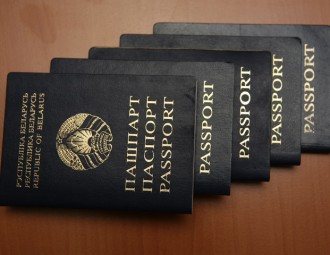Andrei Yeliseyeu: State can’t do without civil society on the way to the visa-free regime with EU

Of course, only if the Belarusan authorities want to see such regime feasible at some point. On June 30 a round-table on simplification of visa regime with the EU took place in Minsk.
Signing of the Agreement on simplification of visa regime with the EU and Belarus was expected at the Eastern Partnership Summit this May. However, notes Andrei Yeliseyeu, an expert from the Belarusian Institute for Strategic Studies (BISS) and a representative of civil coalition “Visa Free Travel Campaign: Go Europe! Go Belarus!” the stance of France and Sweden prevented it from happening. Representatives of these countries assume that for visa-free travelling around EU territory the holders of diplomatic passports should have biometric passports.
- So we only have to hope that the agreement will finally be initialed in the second half of 2015; at least, according to Latvian diplomats say, who were in charge of the negotiation process in the first half of this year. Basically, as far as I know, only this aspect is unresolved – at what basis the holders of diplomatic passports can move across the EU. The parties have agreed about all the other parameters.
At the same time, there is a chance that the changes to the EU Visa Code that are to be introduced shortly will be more progressive than the novices presupposed by the Belarus-EU agreement that hasn’t been signed yet.
- This situation happened because Belarus has been permanently late. And indeed, it might happen so that the agreement about the simplified visa regime enters into force practically simultaneously with the changes introduced to the EU Visa Code – so Belarusans get the same benefits without waiting for the agreement. Thus, we just need to continue negotiations in order to make an Agreement on simplification of visa regime with the EU even more beneficial than the Visa Code.
Changes of the EU Visa Code presuppose free visas for all the underage; those who had at least one long-term via before will be able to get next visa for 3-5 years immediately; it might be possible to get a short-term visa for a trip of up to 15 days immediately at the border. The changes will be adopted not earlier than in the middle of 2016.
If we consider the long-term prospective of visa abolition, actions for visa liberalization presuppose certain conditions that the country should fulfill. Now, for example, Ukraine is fulfilling such conditions in order to switch to the visa-free regime. Belarus has no problems with “control of illegal migration and control of borders”. But there will be problems, Andrei Yeliseyeu notes.
- Belarus now has good indicators and reputation for control of illegal migration at the borders. In this sense Belarus won’t need to make much effort, likewise with the other conditions, too, since in our country executive authorities control the legislative. I.e. generally speaking, if there is political will in Belarus, numerous draft laws that the Ukrainian parliament has been zealously discussing for many years can be adopted very quickly. But, of course, there will be very problematic issues. For example, anticorruption agency that should be independent from any branch of power. Considering our realms, the work of such anticorruption body in Belarus is very hard to imagine.
In other EaP countries civil society has been seriously involved in the preparation process, introduction of offers for simplification of visa regime or switch to non-visa regime. As Andrei Yeliseyeu assumes, Belarusan state cannot avoid it either.
When this agreement on simplification of visa regime is initialed, when its text is known, published, then non-governmental organizations that are working in different spheres should study its content and make their suggestions. Analytical work should be carried out and its results should be presented to the civil society. NGO will have to work together so that the offers come not from single organizations. Perhaps, there will be need to create some kind of Consortium. As to the content of the offers… I think that NGOs that unite people by professions will have their questions, since professional categories in the agreement are most likely to be considered separately. NGOs that unite people with disabilities and those that unite the retired will also have questions, I think.
It is possible that Belarus will be facing another big problem if our country finally decides to move towards the visa-free regime, and that is the introduction of biometric domestic passports. For now we know about several pilot projects, for sailors, for example; there were also competitions for the models of such passports.
- There is no special law in Belarus yet. We still have several years in stock, - noted Andrei Yeliseyeu.
-
03.01
-
07.10
-
22.09
-
17.08
-
12.08
-
30.09



























